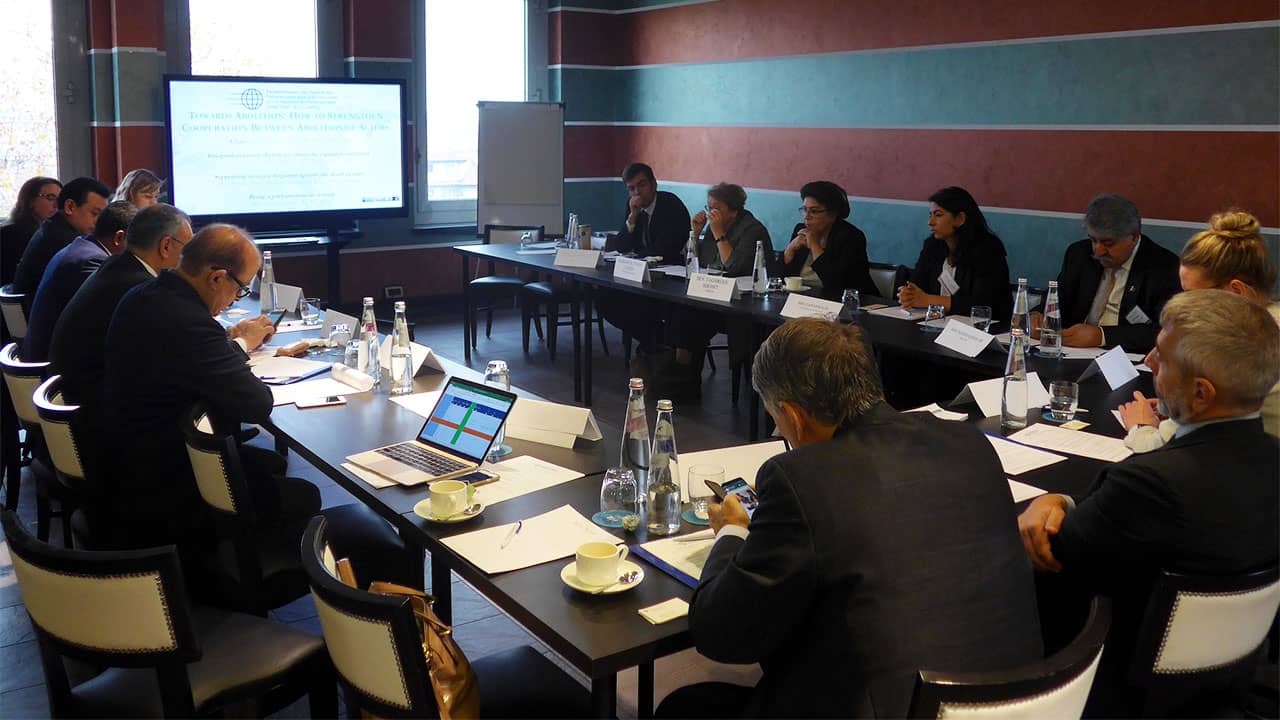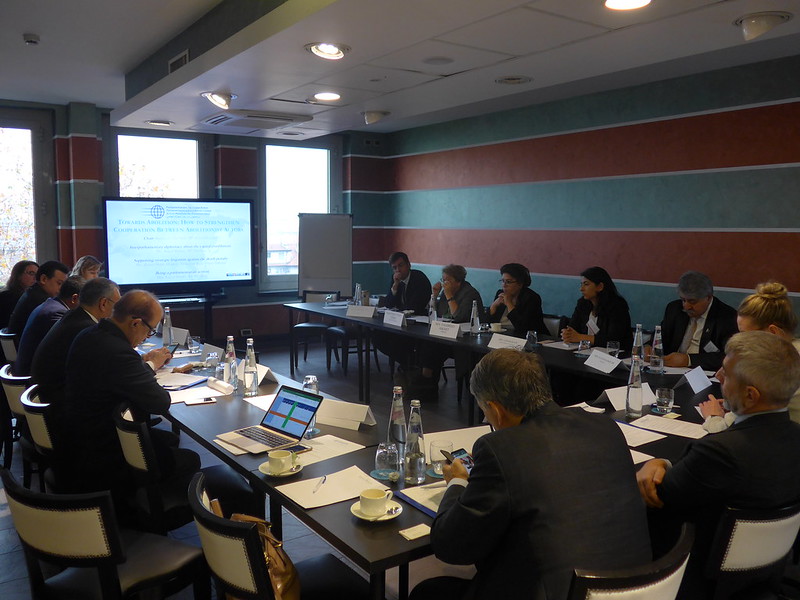
On 29 November 2017, Parliamentarians for Global Action organised a parliamentary roundtable, Entitled “Moving Away from Capital Punishment in Asia” on the margins of its 39th Annual Forum for Parliamentary Action in Preventing Violent Extremism and Mass Atrocities, held in Milan (Italy) on 27 and 28 November 2017. This event focused on the issues and arguments relevant to the abolitionist movement in Asian countries.
Hon. Patrick Kensenhuis, PGA Member from Suriname, first opened the discussions by sharing his own personal experience with pushing back against the capital punishment. Then, PGA’s Secretary General, Dr. David Donat Cattin, framed the debate within the work accomplished by PGA’s Campaign for the Abolition of the Death Penalty. He also underlined that PGA’s Malaysian Members could not be present due to the imminent vote in Parliament on the bill on the mandatory death penalty for drug-related offences, that was announced by Min. Azalina Othman Said during PGA’s Roundtable on the Abolition of the Death Penalty in Malaysia, held on 25 July 2017.
Under the chairing of Mr. Marco Perduca, former Senator and Chairman of PGA’s National Group in Italy, participants exchanged about the characteristics of the death penalty in Asia. Hon. Naveed Qamar (Pakistan), Co-Convenor of PGA’s International Peace and Security Program and former Minister of Defense, gave an overview of the place capital punishment holds in the Pakistani legal system, especially its use as a counter-terrorism measure, and past and present efforts made towards abolition. Then, Sen. Taghreed Hikmat (Jordan), PGA Member and former Judge at the national and international level, shared her personal experience as a judge and that of her country, which applied a moratorium until 2014. Using the results of the Parliamentary Roundtable on Strengthening the Rule of Law held in Amman earlier that month, she insisted on how to rebut religious arguments put forward in Muslim-majority countries and declared that “the death penalty is a cold-blooded murder committed in the name of the State.” Sen. Antonio Trillanes (Philippines), Chairman of the National Defense and Security Committee and the Civil Service and Government Reorganisation Committee, PGA Member, closed the first panel by describing to the other attendees the particular situation of the Philippines, where despite a long-standing abolition the new government committed to reintroducing the death penalty in the country. The move was recently blocked by a few of the Members of the Senate, after the House of Representatives had massively voted in favour. Hon. Tariq Anwar (India), explained the history of the use and legality of the Death Penalty in India and his own experience advocating for abolition.
Under the chairwomanship of Baroness Vivien Stern, Co-Chair of the All-Parliamentary Group for the Abolition of the Death Penalty in the Parliament of the United-Kingdom and PGA Member, explored what type of initiatives and activities might help parliamentarians in their push towards abolition of the death penalty. Mr. Ahmed Mahloof (Maldives), PGA Member, explained the delicate situation of his country – which also aims to reintroduce the death penalty - and how the support of international networks, such as PGA, has become essential to members of the opposition like himself in order for them to keep promoting ideas and values that differ from that of the majority. Then, Mrs. Zainab Malik, Head of Advocacy at Justice Project Pakistan, presented to the participants the work of her organisation, which uses strategic litigation to limit the scope of the death penalty in Pakistan, and how their findings and their strategies might be used in other countries.
Finally, Mr. Mario Marazziti (Italy), Chairman of the Social Affairs Committee, PGA Member and Founder of the World Coalition against the Death Penalty, led the discussions on potential initiatives and commitments that could be made as a follow-up to the roundtable. The participants adopted an Action Plan, which aims at drawing strategies in each country to further promote the abolition of the death penalty.


